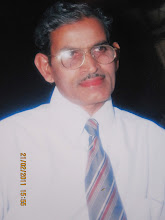Why do we fondle the tail of the
Nandeeswara statue in the Sivalayam ?
We see the Nandeeswara statue installed
in front of the Lord Siva in the temple.
In the temple, in the innermost chamber
(Garbha sthanam) where the main image
of the lord Siva is installed and outside of the
Garbha sthanam the Nandeeswara’s idol is installed.
The Temple construction ( Alaya nirmanam)
and the installation of the Deities ( Devata vigraha pratishta)
in the temple is completly done according to the Sastras.
The process of that takes three to five days
by strictly performing the sacred Homas,
chanting the Hymns of the Vedas and other Mantras etc.,
Once the Alayanirmanam and the Vigraha Pratishta
are completed as per the Sastras, next day onwards
(afterwards) the daily pooja and dhoopa deepas and
chanting the Mantras must be performed without fail.
In the Sivalayam, the innermost chamber,
the lord Eswara’s Idol or image is installed and
outside of Garbhalayam infront of the lord Siva’s
idol or Siva linga the Nandeeswara’s idol which is
also constructed with the precious stone and isntalled there.
Here the Nandeeswara is not the Bull .
It is not belonging to that species.
The Nandi is the most obedient and
made respectful offering of his egoism to the lord
and also the great devotee of Him.
The Nandeeswara always stands before
the entrance of the Mount Kailasa
of the place where the Lord Eswara dwells.
If we fondle the tail of the callte like cow, buffalow,
the bull, by nature they feel very happy
and offering their submission to us.
In the Siva Temple, when we visit there,
all we compulsorily do the fondle
(treat with fondness) the Nandeeswara.
Then the Nandi feels so happy and do the Nivedana
(appeal to the higher authority of) to the lord Siva
that we, the devotees have visited there to obtain
the darshan of the God and make us to have the darshan.
The Bull (Ox) is the representation
for the Dharma and so by doing the fondle
( treating with fondness) of the Nandi is the symbol
for that we are instigating the Dharma and
also shows that we follow the Dharma.

0 comments:
Post a Comment